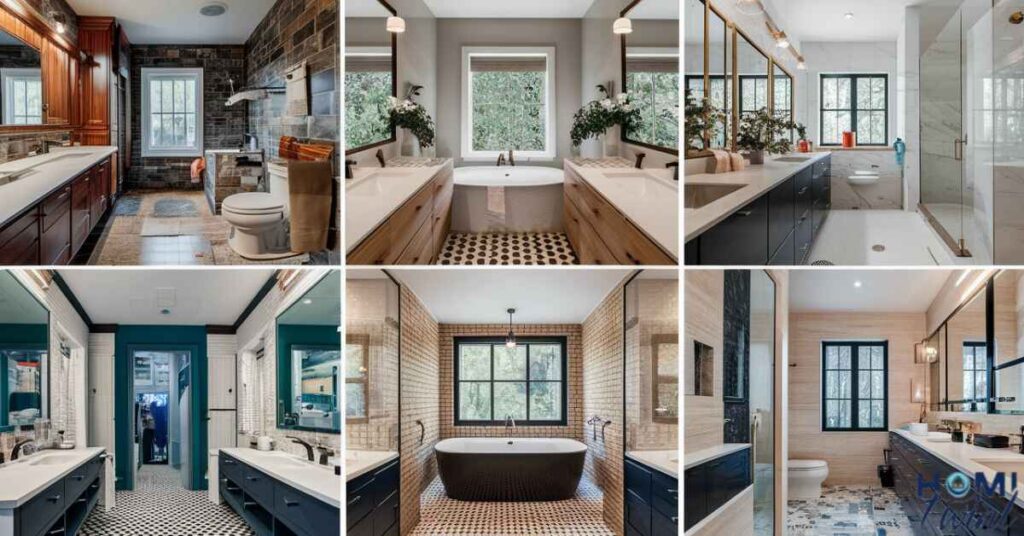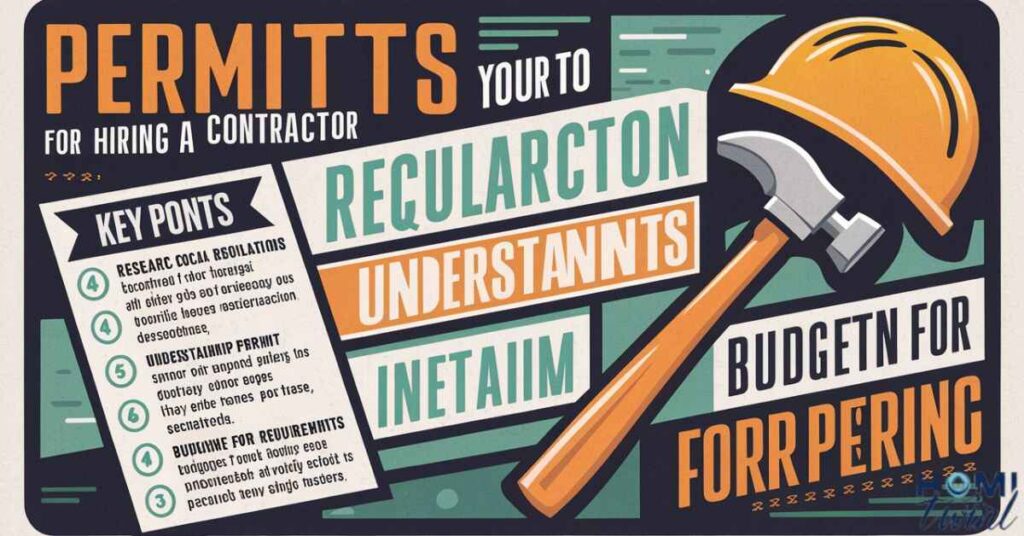You’ve been dreaming of a luxurious new bathroom for months. You’ve meticulously planned every detail, from the sleek tile patterns to the rainfall showerhead. But as the renovation date approaches, a nagging thought creeps in – do you actually need a permit for this bathroom makeover?
Many homeowners might be tempted to skip the permitting process, viewing it as an unnecessary hassle. However, failing to obtain the proper permits can have severe consequences, jeopardizing both your safety and your investment.
In this comprehensive guide, we’ll dive deep into the world of bathroom remodeling permits, exploring when they’re required, the permitting process, and the potential pitfalls of ignoring this crucial step.
What is a Bathroom Remodeling Permit, and Why Do You Need One?

A bathroom remodeling permit is an official document issued by your local government or building authority, granting you permission to proceed with your renovation plans. But it’s more than just a formality – obtaining a permit ensures that your project adheres to critical safety standards and building codes.
Read This Blog: MY PARTNER OWNS THE HOUSE – WHAT RIGHTS DO I HAVE?
Think about it: bathrooms involve intricate plumbing, electrical, and ventilation systems that, if not installed correctly, could pose serious risks. From water damage and mold growth to electrical fires and structural instability, the consequences of shoddy workmanship can be catastrophic. By requiring permits, local authorities can review your renovation plans and confirm that they meet the necessary safety requirements, protecting you, your family, and your neighbors.
The Nitty-Gritty: When Exactly Do You Need a Permit for Your Bathroom Makeover?
While the specifics may vary depending on your location, there are certain bathroom renovations that almost universally require a permit.
- Structural changes: If you’re planning to move or remove walls, expand the bathroom’s footprint, or make any other significant structural modifications, a permit is a must.
- Electrical work: Adding new electrical outlets, relocating existing ones, or updating your bathroom’s lighting will likely necessitate an electrical permit.
- Plumbing alterations: Changing the layout of your plumbing lines, installing a new shower or bathtub, or relocating fixtures like sinks or toilets typically requires a plumbing permit.
On the other hand, purely cosmetic changes like painting, replacing tiles, or swapping out vanities and mirrors may not require a permit, as long as you’re not altering the room’s layout or infrastructure.
However, it’s essential to check with your local building department, as regulations can vary from one municipality to another. When in doubt, err on the side of caution and inquire about permit requirements – after all, it’s better to be safe than sorry.
Also Read This Blog: WHY DOES MY BATHROOM SMELL LIKE SEWER
Real-Life Examples: Bathroom Renovations That Needed Permits (And Why)

To illustrate the importance of obtaining permits, let’s explore a few real-life scenarios.
- The Wall Removal Mishap: A couple in Denver decided to knock down a non-load-bearing wall to open up their bathroom, unaware that it concealed electrical wiring and plumbing lines. Without a permit and proper inspection, they inadvertently caused significant damage, resulting in costly repairs and potential safety hazards.
- The Ventilation Oversight: In Portland, a homeowner installed a luxurious new bathtub without considering the need for proper ventilation. Without a permit and subsequent inspection, the lack of adequate airflow led to persistent mold issues, compromising the family’s health and requiring extensive remediation.
- The Fixture Fiasco: A DIY enthusiast in Chicago replaced an old bathtub with a larger, heavier model, failing to account for the increased weight and strain on the bathroom floor. Without a permit or professional guidance, the unsupported floor eventually cracked, necessitating expensive repairs and potential structural reinforcement.
These cautionary tales underscore the importance of consulting with professionals and securing the necessary permits before embarking on any significant bathroom renovation project.
The Permitting Process Explained: A Step-by-Step Guide
Now that we understand the significance of permits, let’s break down the process of obtaining one for your bathroom remodel.
- Research local requirements: Start by contacting your local building department or permitting office to determine the specific requirements and documentation needed for your project. Be prepared to provide detailed plans, drawings, and specifications.
- Hire licensed professionals (if needed): Depending on the scope of your renovation, you may be required to work with licensed contractors, electricians, or plumbers. These professionals can assist with the permitting process and ensure compliance with all relevant codes.
- Submit your application: Once you’ve gathered the necessary documentation, submit your permit application along with any required fees. Be prepared to provide detailed information about the proposed work, including materials, dimensions, and timelines.
- Plan review: Your local building department will review your application and plans to ensure they meet all safety standards and building codes. This process can take several weeks, so plan accordingly.
- Obtain the permit: If your plans are approved, you’ll receive the necessary permits, allowing you to proceed with your bathroom renovation.
- Schedule inspections: Throughout the project, you’ll likely need to schedule inspections at various stages, such as after completing rough plumbing or electrical work. These inspections ensure that the work is being performed correctly and adheres to the approved plans.
- Final inspection and approval: Once the renovation is complete, a final inspection will be conducted to ensure compliance with all codes and regulations. If everything passes, you’ll receive a certificate of occupancy or final approval.
While the permitting process may seem daunting, following the proper channels can save you from potential headaches and costly mistakes down the line.
Hiring a Contractor? Here’s What You Need to Know About Permits

If you’re planning to hire a contractor for your bathroom renovation, it’s crucial to verify their credentials and ensure they’re familiar with the local permitting process. Reputable contractors should handle the permit application and inspection scheduling on your behalf, but it’s still wise to remain informed and involved.
Remember, as the homeowner, you’re ultimately responsible for ensuring that all necessary permits are obtained and that the work is performed according to code. Don’t hesitate to ask your contractor for copies of the permits and inspection reports, and feel free to contact your local building department with any questions or concerns.
The Costly Consequences of Skipping the Permit Process
While the permitting process may seem like a hassle, ignoring it can have severe ramifications, both financially and legally. Here are just a few potential consequences of renovating without the proper permits.
- Fines and penalties: If your local authorities discover that you’ve undertaken unpermitted work, you could face substantial fines, which can quickly add up, especially if the violations are ongoing.
- Stop work orders: In some cases, authorities may issue a stop work order, halting your renovation project until you obtain the necessary permits and rectify any code violations. This can lead to costly delays and disruptions.
- Legal issues: Unpermitted work can create legal liabilities, potentially exposing you to lawsuits if someone is injured or if property damage occurs due to substandard workmanship.
- Difficulty selling your home: When it comes time to sell, unpermitted renovations can be a major red flag for potential buyers. Not only does it raise questions about the quality of the work, but it can also complicate the sale process and potentially reduce your home’s value.
- Increased insurance premiums or denied claims: Insurance companies may deny claims or increase your premiums if they discover unpermitted work, as it represents an unknown risk.
In short, attempting to circumvent the permitting process is simply not worth the potential legal, financial, and personal consequences.
Permits and Resale Value: How Following the Rules Can Pay Off

On a more positive note, obtaining the necessary permits for your bathroom renovation can actually benefit you in the long run, especially when it comes to your home’s resale value. Here’s how.
- Documentation: Proper permits and inspections provide valuable documentation, assuring potential buyers that the work was performed legally and to code. This can instill confidence and eliminate concerns about potential issues down the line.
- Increased property value: Well-executed, permitted renovations can significantly increase your home’s value, as they demonstrate that the improvements were done professionally and with attention to safety and quality.
- Easier sales process: When you have all the necessary documentation and permits in order, the sales process tends to be smoother and more straightforward, without the need for extensive disclosures or negotiations regarding unpermitted work.
- Competitive edge: In a crowded real estate market, a meticulously renovated and properly permitted bathroom can give your home a competitive edge, making it more attractive to potential buyers.
By prioritizing permits and following the proper channels, you’re not only protecting your investment but also setting yourself up for a more successful and lucrative home sale in the future.
Frequently asked question
Do I need a permit for minor bathroom renovations?
No, minor updates like painting, replacing hardware, or updating fixtures usually don’t require a permit.
When is a permit required for a bathroom remodel?
A permit is required for significant structural changes, such as removing walls, altering plumbing, or modifying the layout.
What are the risks of remodeling without a permit?
Remodeling without a permit can lead to safety issues, fines, or difficulties when selling your home.
Who is responsible for obtaining the permit?
If you hire a contractor, they typically handle the permit. If you DIY, you must obtain it yourself.
How do I apply for a bathroom remodel permit?
Contact your local building department, provide a detailed renovation plan, and pay the required fees.
How long does it take to get a bathroom remodel permit?
Permit approval times vary but can range from a few days for simple projects to several weeks for complex renovations.
Conclusion
When remodeling a bathroom, understanding the need for permits is crucial. Permits ensure that any structural, electrical, or plumbing changes comply with local building codes, enhancing safety and legality. Minor updates like painting or replacing fixtures generally don’t require permits, but significant alterations do.
Failure to obtain the necessary permits can lead to safety risks, legal issues, and problems during future property sales. If you’re working with a contractor, they usually handle the permit process. For DIY projects, homeowners must secure permits themselves by contacting local building authorities and submitting detailed renovation plans. Obtaining the proper permits safeguards your investment and ensures that your bathroom remodel meets all required standards.







